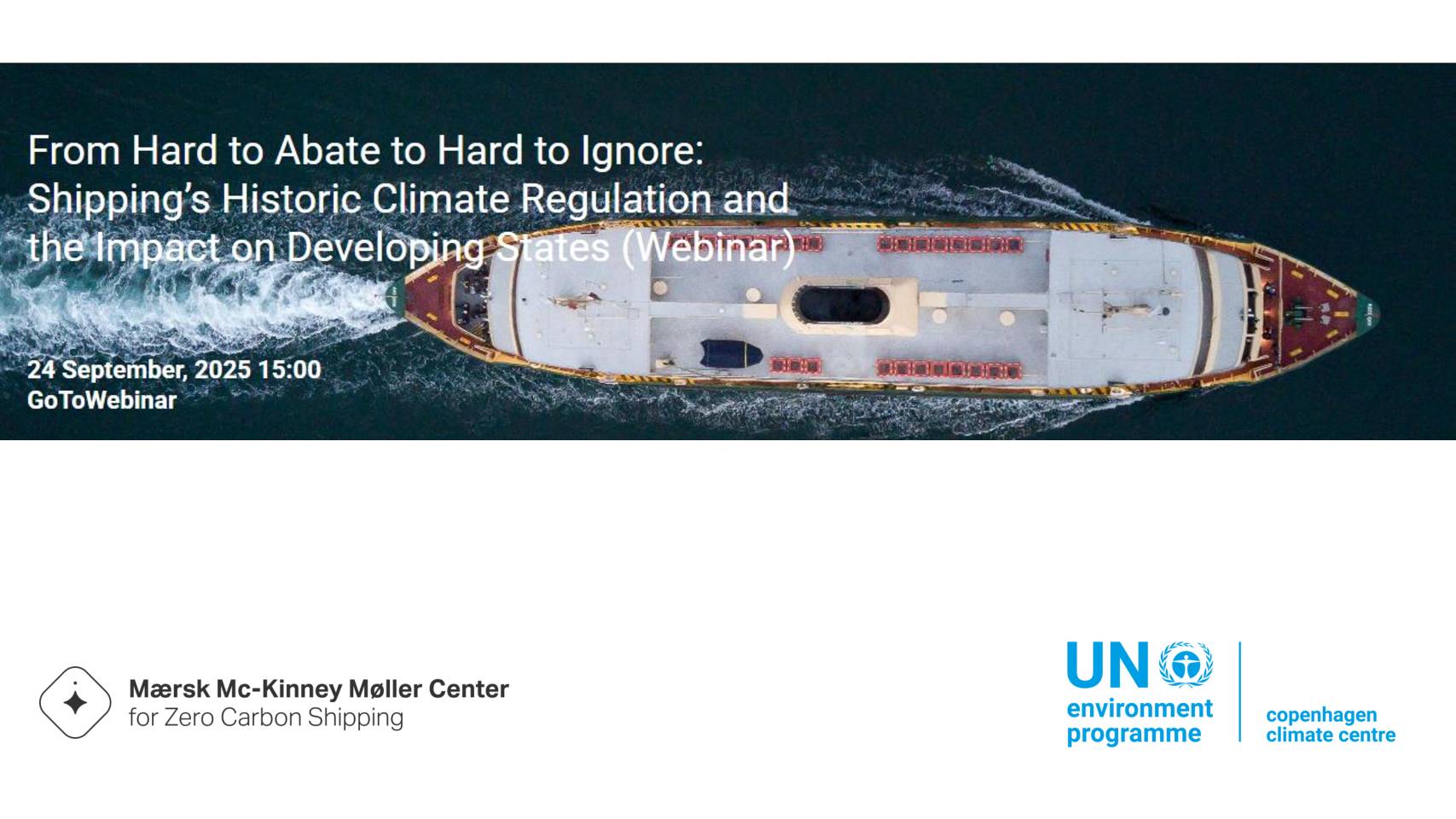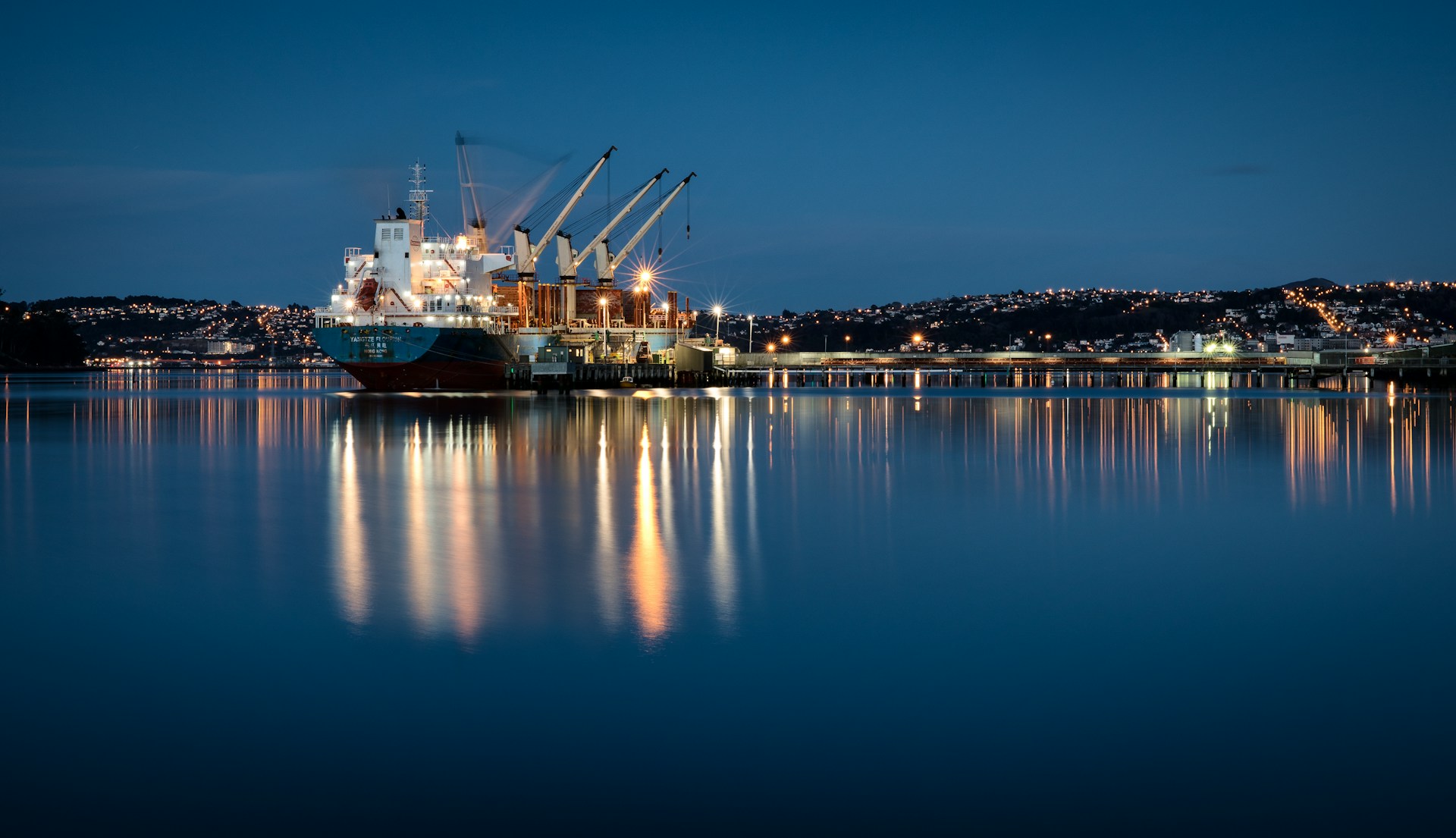This webinar, co-hosted by the UNEP Copenhagen Climate Centre and the Mærsk Mc-Kinney Møller Center for Zero Carbon Shipping, explored the International Maritime Organization’s (IMO) Net Zero Framework—described as the first global, legally binding climate regulation for an industry sector.
Gabriela Prata Dias opened the session by emphasising the urgency of climate action, noting that “emissions need to be declining before 2030 to keep the 1.5 degree within reach.” She highlighted the shipping sector’s contribution to global emissions and the potential of energy efficiency as the “first fuel.” The framework aims to reduce fuel intensity and includes mechanisms for finance, technology transfer, and capacity building, with special attention to vulnerable states such as Small Island Developing States and Least Developed Countries.
Joe Bettles provided a detailed technical overview of the IMO Net Zero Framework, which introduces a two-tier fuel standard. The first tier sets a mandatory emissions intensity limit, with penalties of $380 per ton of CO₂ deficit for non-compliance, while the second tier functions as a GHG pricing mechanism with a lower penalty designed to generate revenue. “This is a strong stick created by the regulation,” Bettles explained, noting that the framework could generate over $10 billion annually to support zero-emission fuels and infrastructure in developing countries. He also outlined compliance strategies for shipping companies, including fuel switching, retrofitting vessels, and adopting technologies like wind-assisted propulsion and electrification. Bettles introduced a modelling tool to help stakeholders assess the business case for sustainable fuels under different scenarios.
Lisa Sachs emphasised the importance of equitable implementation and regional cooperation. “What happens in the next few months and year is decisive for how the benefits are distributed,” she stated, warning that without intentional design, benefits could disproportionately flow to developed countries. Sachs highlighted the ASEAN region as a promising example, where countries like Singapore and the Philippines could collaborate on clean fuel corridors and shared infrastructure. She also pointed to Southern Africa and Central America as regions with similar potential. “No individual emerging market will be cost-competitive alone,” Sachs noted, advocating for pooled financing structures, regional strategies, and coordinated positions in IMO negotiations. She called on development finance institutions to support broader ecosystem approaches that address structural barriers and unlock transformative opportunities for emerging economies.
Download sourceShare this

Sector: Transport
Country / Region: Denmark, Global
Tags: ammonia, biofuels, decarbonisation, energy efficiency, greenhouse gas emissions, hydrogen, IMO, infrastructure, International Maritime Organization, maritime, methanol, shippingIn 1 user collection: C2E2 Webinars
Knowledge Object: eLearning
Publishing year: 2025
Content:






